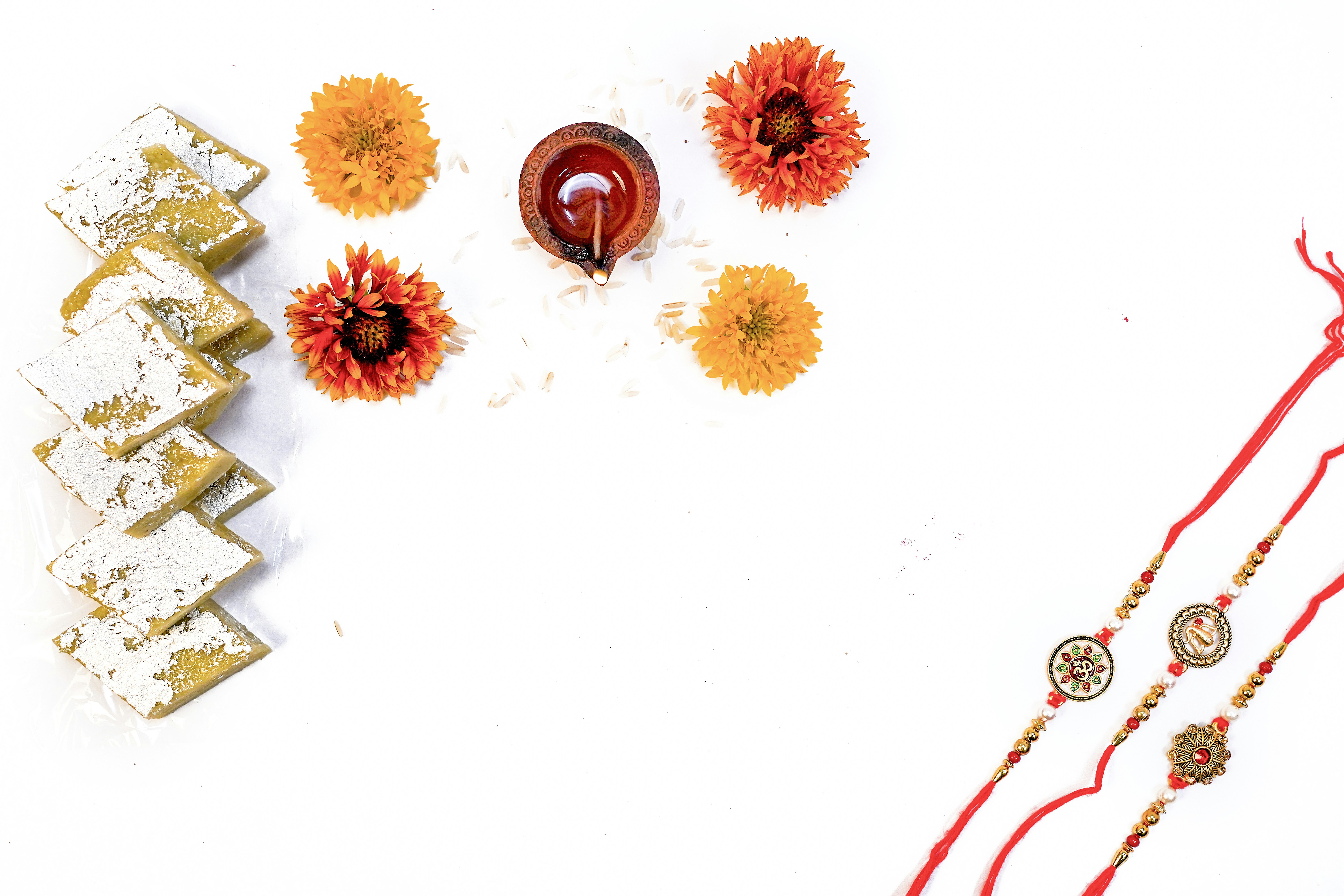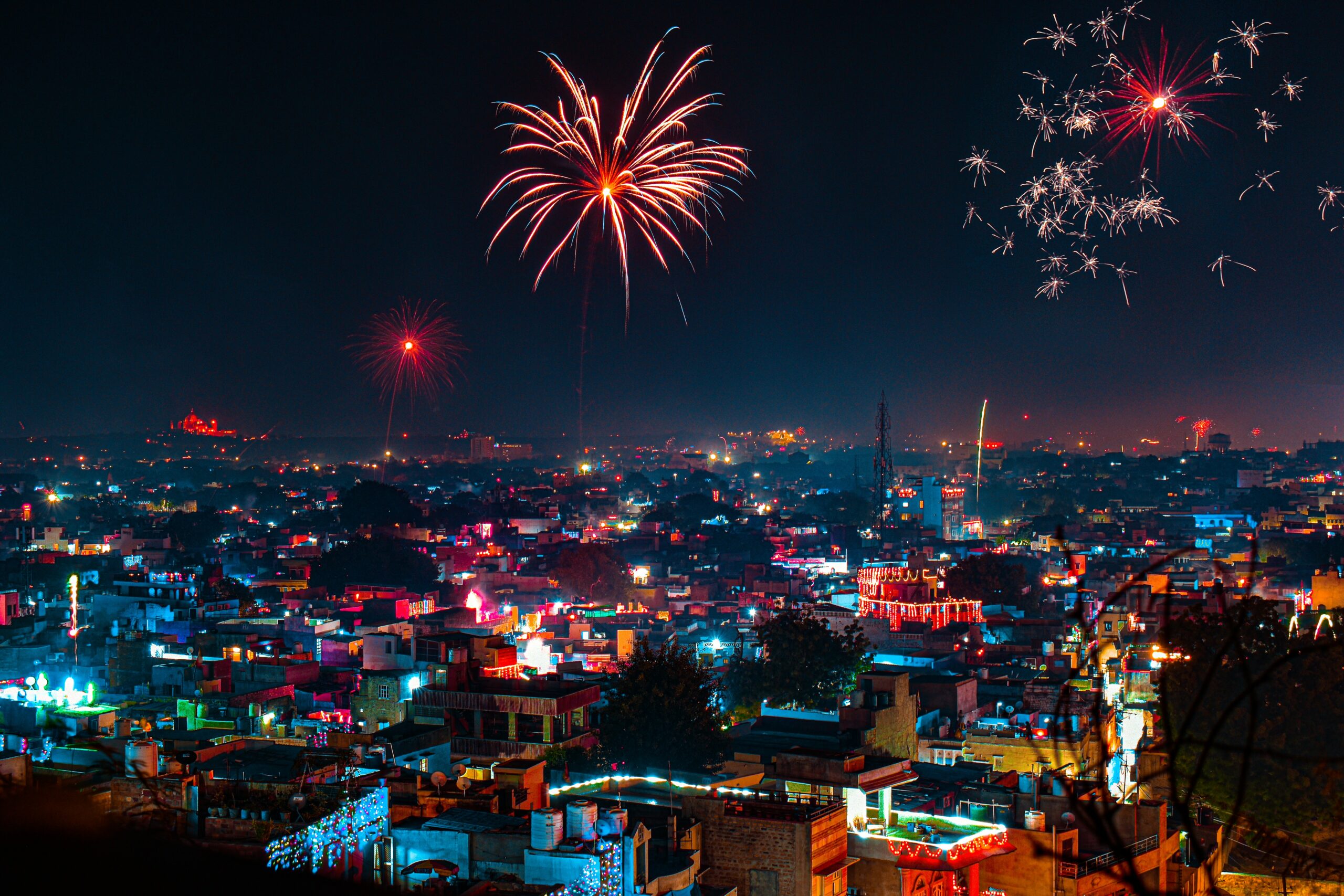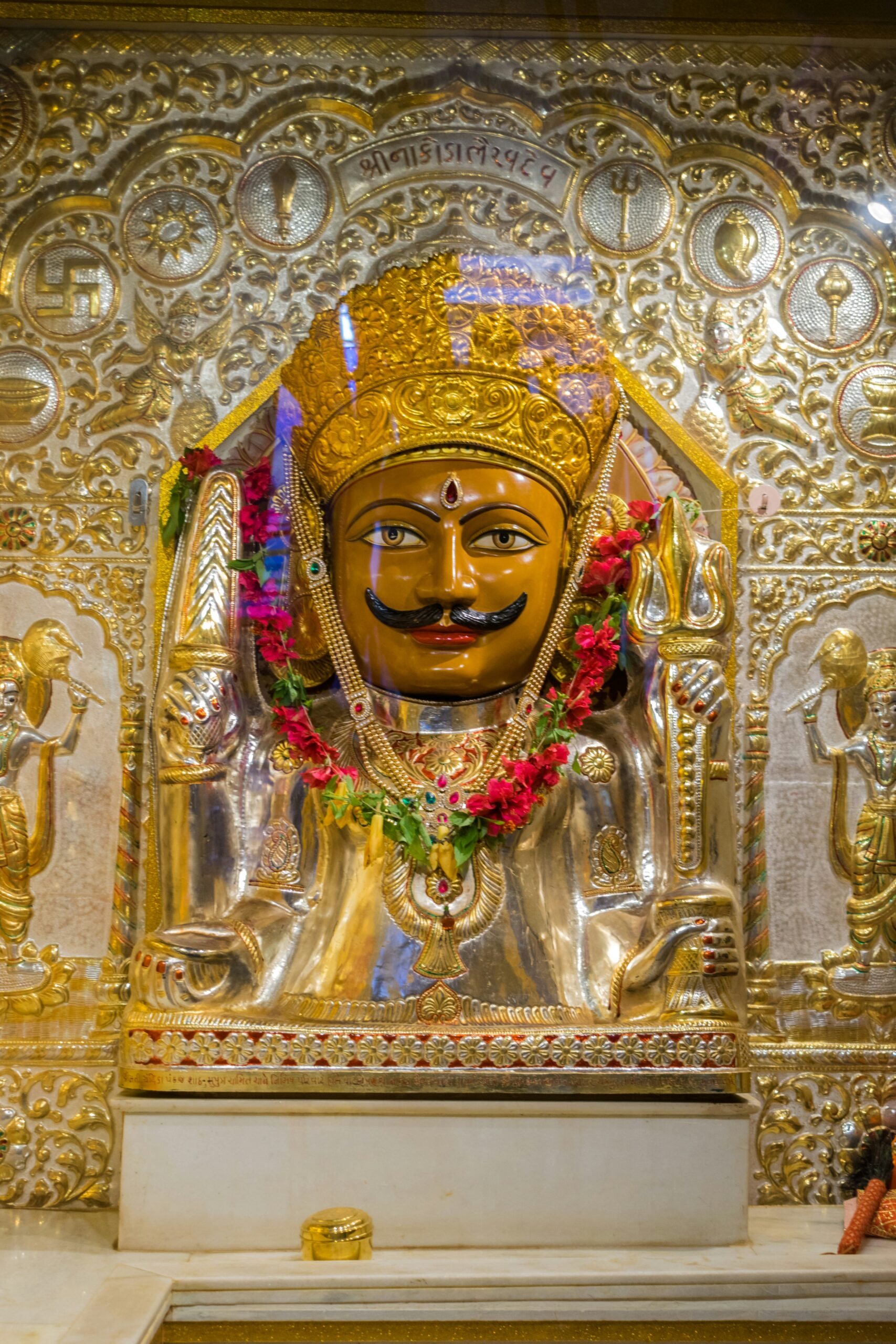
Introduction to Gudi Padwa
Gudi Padwa, a vibrant and culturally rich festival, holds significant importance in Maharashtra as it marks the commencement of the Hindu New Year. Celebrated on the first day of the Chaitra month, typically falling in March or April, Gudi Padwa heralds a fresh start filled with hope and vitality. This day coincides with the harvesting season, symbolizing prosperity and the arrival of new crops. It embodies the spirit of renewal and joy, as families come together to celebrate the abundance of nature.
The term “Gudi” refers to a flag or banner and is intricately woven with the cultural fabric of the celebration. On this auspicious day, people hoist a Gudi, which is adorned with a bright green or yellow cloth, a garland of flowers, and a pot placed at the top. This decorative emblem is believed to ward off evil and bring good fortune into homes. The custom of raising the Gudi serves as a symbolic welcome to the new year and reflects the resilience and spirit of the people.
While Gudi Padwa is predominantly celebrated in Maharashtra, it bears similarities to other regional New Year celebrations across India. For instance, the Tamil New Year, known as Puthandu, showcases parallel customs and themes, emphasizing the significance of harvest and renewal. Although the cultural expressions may vary, the shared essence of hope, togetherness, and reverence for nature unite these festive occasions. Various rituals and practices observed during Gudi Padwa, such as preparing traditional dishes and offering prayers, underline the festival’s importance in fostering community bonds and familial connections.
The Significance of Gudi Padwa
Gudi Padwa, celebrated predominantly in the Indian state of Maharashtra, marks the beginning of the New Year according to the Hindu lunar calendar. This festival holds immense cultural and religious significance, intertwining various mythological anecdotes that resonate deeply with its observers. One of the most poignant stories associated with Gudi Padwa is the return of Lord Rama to Ayodhya after a 14-year exile. This joyful occasion signified the triumph of good over evil, and the festivities symbolize the end of darkness and the arrival of a new basking light, filled with hope and prosperity.
Beyond the reverence for Lord Rama, Gudi Padwa also draws connections to the phases of the moon. The festival occurs on the first day of Chaitra month, which aligns with the waxing phase of the moon, symbolizing growth, renewal, and rejuvenation. This cosmic alignment enlivens the celebration, as devotees invoke blessings for a fruitful year ahead, marked by abundance and tranquility.
An integral aspect of Gudi Padwa is the ‘Gudi’ itself — a decorative banner symbolizing victory and prosperity. The Gudi is often made from a neem or mango leaf atop a brass or silver pot and is hoisted outside homes to ward off negativity. The vibrant colors and intricate designs serve to not only embellish the house but also act as an invitation for auspiciousness into one’s home. The Gudi, representing the spirit of victory, evokes a sense of enthusiasm among the family members and invites them to come together in celebration. It is customary to perform prayers before the Gudi, further enhancing its significance as a conduit for blessings and good fortune.
In summary, Gudi Padwa is not just a festival of joy; it embodies a rich tapestry of mythology, cultural roots, and community spirit, making it an essential occasion in the Hindu calendar.
Gudi Padwa Wishes and Greetings
Gudi Padwa, the traditional Marathi New Year, is a time for celebration, joy, and the sharing of heartfelt wishes with friends and family. The significance of this festival can be beautifully encapsulated in various greetings that reflect the spirit of togetherness and the joyous occasion. Here are some meaningful Gudi Padwa wishes that you may consider sharing with your loved ones.
One of the most cherished greetings is, “Wishing you a year filled with prosperity and good fortune. Happy Gudi Padwa!” This message emphasizes the hopes for a flourishing year ahead and is perfect for conveying your warm regards to anyone celebrating. Another popular greeting in Marathi is “Gudi Padwa chya hardik shubhechha!” which translates to “Heartfelt wishes for Gudi Padwa!” This traditional greeting expresses genuine happiness and blessings to family and friends.
“May this Gudi Padwa bring you new beginnings, joyful moments, and endless happiness. Happy New Year!” This wish highlights the essence of new beginnings, encouraging individuals to embrace the opportunities that lie ahead. Additionally, “This Gudi Padwa, may your life be filled with sweetness and joy, just like the delicious treats we enjoy during the festival” serves as a reminder of the festive delicacies shared during this time, promoting joy and togetherness.
It is also an excellent idea to personalize these greetings, perhaps by sharing memories or hopes for the future. Wishing people well during Gudi Padwa is a way to strengthen bonds and spread positivity. By sending thoughtful messages and greetings, you can enhance the celebration and make this festival even more memorable for your loved ones.
Captivating Gudi Padwa Images
Celebrating Gudi Padwa, the Hindu New Year, is incomplete without the vibrant visual representation of the festival. Gudi Padwa images embody the essence of this auspicious day, showcasing traditional decorations, joyous gatherings, and delightful feasts. Key elements of these images often include the decorative Gudi, an effigy adorned with a bright saree and capped with a neem branch, symbolizing prosperity and good fortune. The vivid displays of rangoli, intricate patterns created at the entrance of homes, serve to invite guests and signify joy. These artistic creations, often made with colored powders, flowers, and grains, represent the rich cultural heritage of the celebration.
The mouth-watering images of festive delicacies, including puris, puranpoli, and shrikhand, further capture the culinary delights associated with Gudi Padwa. The sight of beautifully arranged plates filled with these special dishes is a visual treat that enhances the celebratory spirit. Each image reflects the essence of togetherness and the joy of sharing these dishes with family and friends, making Gudi Padwa not only a spiritual observance but also a feast for the eyes.
To find and share captivating Gudi Padwa images, social media platforms and stock photo websites are excellent resources. Instagram, for instance, is a treasure trove for artistic representations, where hashtags such as #GudiPadwa and #GudiPadwa2025 can lead you to a variety of stunning visuals. Additionally, Pinterest is an ideal platform for discovering creative decorations and festive ideas that can inspire your own celebrations. By using these images on your social media, you can share the vibrancy of Gudi Padwa with friends and family, allowing them to partake in the festive aura from afar.
Shubhechha for Gudi Padwa
Shubhechha is a term derived from the Sanskrit language, signifying auspiciousness or good wishes. It plays a vital role during Gudi Padwa, a celebrated festival that marks the beginning of the new year in several Indian states, particularly Maharashtra. As families come together to celebrate the festival, they exchange Shubhechha phrases symbolizing goodwill and prosperity. These blessings are not merely words; they embody hopes and positive intentions for the year ahead, reinforcing familial bonds and communal harmony.
During Gudi Padwa, it is customary for family members and friends to greet one another with heartfelt Shubhechha phrases. Common expressions include “Shubha Gudi Padwa,” which translates to “a happy Gudi Padwa,” and “Shubhechha for the new year,” encapsulating the joy and optimism associated with the festival. Other phrases such as “Aaplyala khup khup shubhechha” meaning “wishing you abundant blessings” or “Dhan, Arogya, and Anand” which wish for wealth, health, and happiness, further highlight the sentiments shared among loved ones.
The exchange of these vibrant blessings is crucial, as it sets a positive tone for the upcoming year. By wishing each other Shubhechha, families contribute to creating an atmosphere filled with love, hope, and encouragement. This ritual of sharing blessings amplifies the spirit of the celebration, allowing individuals to reflect on the past year while looking forward to new beginnings and opportunities. Thus, Shubhechha on Gudi Padwa serves not only as a tradition but also as a means to foster goodwill and promote positive energy within the community and beyond.
Celebrating Tamil New Year Alongside Gudi Padwa
The convergence of Tamil New Year and Gudi Padwa is a remarkable occasion that showcases the rich tapestry of Indian culture. While Gudi Padwa marks the New Year for the people of Maharashtra, Tamil New Year or Puthandu is celebrated in the Tamil Nadu region. Both festivities fall around the same time, usually in April, signifying the arrival of spring and the onset of new beginnings.
At the heart of Tamil New Year is the celebration of rebirth and renewal, akin to the themes prevalent in Gudi Padwa. Families partake in the ritual of cleaning and decorating their homes with kolams, or intricate designs made from rice flour. Traditional dishes, such as ‘mango pachadi’, incorporating the flavors of sweet, sour, and bitter, reflect the myriad experiences of life. This festival symbolizes the hope and joy that come with a fresh start.
On the other hand, Gudi Padwa is celebrated with the hoisting of a Gudi, a decorative pole adorned with a bright shalu (cloth), neem leaves, and a garland of flowers. This act signifies the victory of Lord Rama and the beginning of the harvesting season. The festive atmosphere is further enhanced by the preparation of ‘Puran Poli’, a sweet flatbread that brings families together around a shared table.
Despite their regional differences, both festivals emphasize unity, joy, and the warmth of family bonds. Communities often come together to share meals, traditional clothing, and cultural performances that highlight their unique heritages. Celebrating Tamil New Year alongside Gudi Padwa not only fosters camaraderie among diverse groups but also enriches the understanding of one another’s cultures. As families participate in each other’s customs, they cultivate mutual respect and appreciation for their shared values of happiness and renewal.
Gudi Padwa 2025: What to Expect
As we approach Gudi Padwa 2025, anticipation builds around how this traditional festival will evolve. Gudi Padwa, marking the Marathi New Year, is celebrated with vibrant energy and cultural festivities. However, societal trends and events play a significant role in shaping these celebrations, allowing for both continuity and innovation in the way people observe this auspicious occasion.
One of the most notable changes expected in 2025 is the increased emphasis on sustainability. With growing awareness about environmental issues, many communities may adopt eco-friendly practices. From using biodegradable decorations to promoting plant-based offerings, celebrations are likely to reflect a deeper commitment to protecting the planet. Additionally, there is a trend toward minimalism, where families may choose simplified yet meaningful ways to celebrate, focusing more on family bonding and connection rather than extravagant displays.
Digitalization continues to influence festive celebrations. In 2025, virtual gatherings may become prevalent, allowing individuals separated by distance to connect and share the joy of Gudi Padwa. Live-streamed events, online workshops for traditional crafts, and virtual cooking classes may serve as popular alternatives, enhancing inclusivity while ensuring the spirit of the festival remains intact.
Emerging traditions may also materialize in response to urbanization and cultural intermingling. For instance, a blend of regional customs may inspire new rituals, combining elements from various communities celebrating Gudi Padwa. Special events, such as cultural fairs highlighting local crafts and cuisines, could become increasingly popular, creating a space for showcasing talent while engaging the younger generations.
In conclusion, Gudi Padwa 2025 is poised to reflect a dynamic blend of tradition and modernity. Whether through sustainable practices, embracing digital innovations, or fostering cultural collaborations, this year’s celebrations are sure to resonate with the evolving spirit of the times while honoring the rich heritage of the festival.
Inspiring Gudi Padwa Quotes to Share
Gudi Padwa marks the beginning of the New Year in the Marathi calendar and symbolizes prosperity, joy, and renewal. It is a time for celebration, reflection, and sharing positive wishes with friends and family. One of the best ways to convey your sentiments during this festive occasion is through inspiring quotes that encapsulate the spirit of Gudi Padwa. Below are some notable quotes that can be shared in greetings or social media posts.
“May the festival of Gudi Padwa bring you happiness, success, and prosperity.” This quote serves as a reminder that Gudi Padwa is not just about celebration, but also about wishing for abundance in all aspects of life. Such sentiments resonate deeply, encouraging personal growth and fulfillment.
Another quote to consider is by Mahatma Gandhi: “Live as if you were to die tomorrow; learn as if you were to live forever.” This encourages individuals to embrace new beginnings, much like the fresh start that Gudi Padwa signifies. It promotes the idea of lifelong learning and transformation, which mirrors the essence of this festival.
Moreover, the words of Swami Vivekananda, “Arise, awake, and stop not until the goal is reached,” can inspire individuals to set new goals and aspirations for the year ahead. As we celebrate this auspicious occasion, it’s essential to remember the significance of hard work and perseverance in achieving one’s dreams.
Lastly, consider sharing, “This Gudi Padwa, may you find joy and positivity in every little moment.” It encapsulates the essence of the festival, focusing on the importance of appreciating the simple joys in life.
By integrating these quotes into your Gudi Padwa wishes, you’ll not only uplift your spirits but also inspire those around you. They serve as potent reminders of the themes of renewal and celebration embedded within this important cultural event.
Conclusion: Embracing the Spirit of Gudi Padwa
As we conclude our exploration of Gudi Padwa, it is essential to recognize its significance as a festival not just of new beginnings, but also of hope and renewal. This joyous occasion, celebrated with exuberance, signifies the importance of spring and prosperity. Gudi Padwa is particularly resonant as it coincides with the Tamil New Year, showcasing the shared cultural values of both celebrations. These times are opportunities for families and communities to come together, to reflect on the past year, and to express gratitude for life’s blessings.
The essence of Gudi Padwa goes beyond traditional rituals and vibrant decorations; it embodies the spirit of unity, togetherness, and optimism. People engage in various forms of celebration—be it through the preparation of special dishes, participation in community events, or the sharing of heartfelt wishes and quotes. Each action taken during this festival reinforces the bonds within families and neighborhoods, fostering a sense of belonging and collective joy. It serves as a reminder that, despite the challenges one may face, there is always a chance for a fresh start and new opportunities.
Considering the approaching year, embracing the spirit of Gudi Padwa and the Tamil New Year can inspire us to set intentions, cherish relationships, and cultivate an outlook filled with positivity. It encourages individuals to contribute to their communities and forge meaningful connections with those around them. Through this festival, we reaffirm our commitment to happiness, love, and support for one another. As we celebrate Gudi Padwa, let us carry forward these ideals and foster a culture of joy that extends beyond just one day, navigating the year ahead with hope and gratitude.


